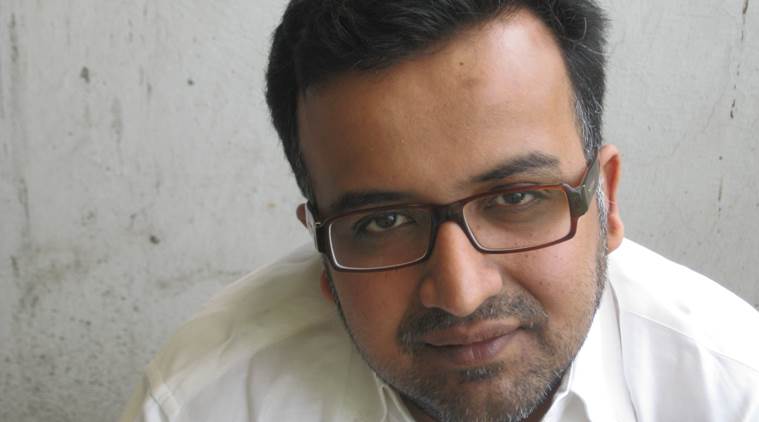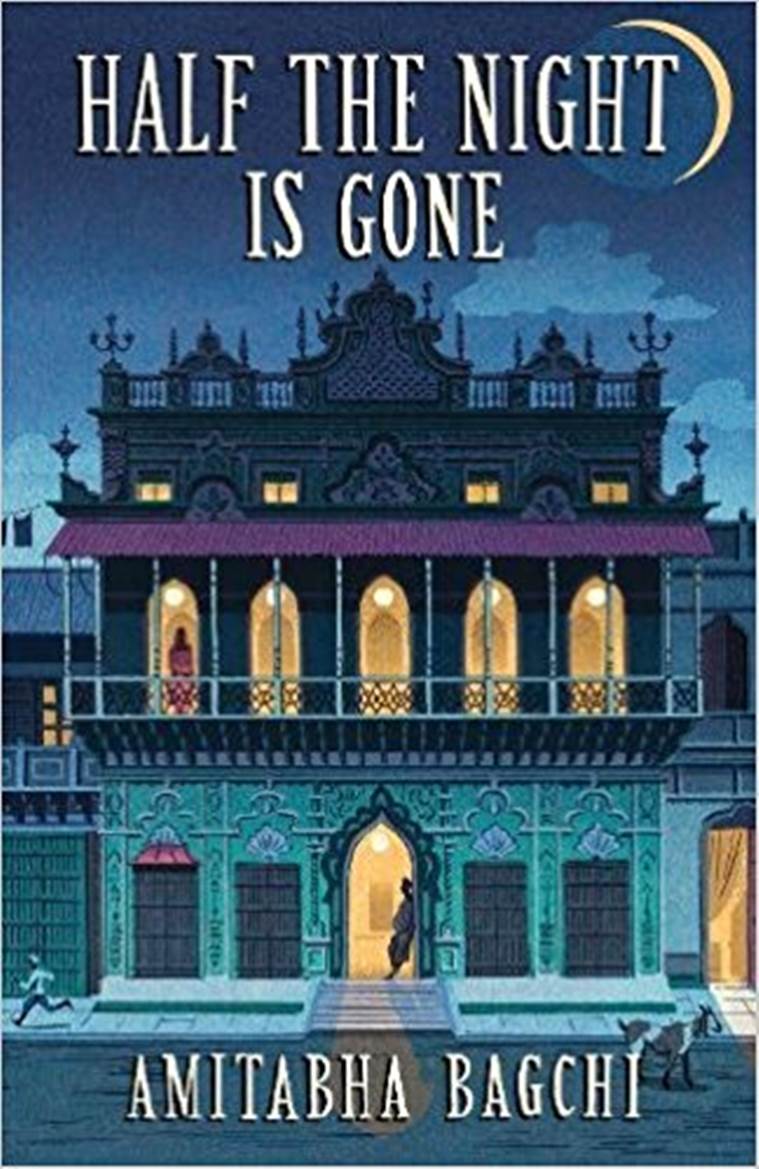I love Hindi but I live English: Amitabha Bagchi on his new novel ‘Half The Night Is Gone’
Author Amitabha Bagchi spoke to indianexpress.com about his far more ambitious third novel 'Half The Night Is Gone', the characters he creates and the language he uses to shed light on them.

The novel Half The Night Is Gone is a far more ambitious and expansive work than Amitabha Bagchi’s previous two novels.
A major part of Amitabha Bagchi’s third novel, Half The Night Is Gone is posited in the old-forgotten world of scheming zamindar, dubious morals and a man lamenting about lost opportunities. Bagchi’s attention to detail ensures the readers are transported to that time, smelling the grime and listening to the creaking sound made by rusted doors.
The second part of the novel, situated in present times, introduces us to a celebrated author, grieving the loss of his only child and witnessing the waning of his audacity and pride as a writer. These seemingly unrelated worlds are in fact conjoined and what follows is a sprawling novel about regret and hope, documenting the unrelenting stride of India towards a modern one. Bagchi’s third book, after Above Average and The Householder is a daunting, ambitious novel that does not mask its politics.
Bagchi spoke to indianexpress.com about his new book, the characters he creates and the language he uses to shed light on them.
Your novel Half The Night Is Gone is a far more ambitious and expansive work than your previous two novels, and deals with the birth of New India. The politics of the nation gets intertwined with personal relationships and the way they play it out. The era has been extensively written about before. What attracted your attention to it and how did you choose to write it differently?
I didn’t see the project as trying to revisit the birth of New India. I was interested in the time when my parents were born, when my grandparents were young, because I wanted to retrieve something of the lives that they had lived. And, quixotically, I thought I could retrieve their lives by inhabiting that time. There were some major historical movements going on at that time, that is true, and to truly inhabit that time I had to step in them and understand where my characters stood vis-a-vis those movements. But the goal was never to write “about” that era, or “explain” that time, or to present new insights into the birth of the New India. I believe those kinds of goals are the domain of non-fiction and scholarly study. My goal was to only inhabit that time and space, to live it to the possible scale.
How difficult was it to express a reality, that is so intrinsically Indian, in English to the readers? Did you ever find the language inadequate pertaining to the story you wanted to narrate?
The question is a little hard to answer. And it has been hard to answer since Raja Rao’s foreword to Kanthapura where he said, “One has to convey in a language that is not one’s own; the spirit that is one’s own.” My own view is that English can express an Indian reality, but, for that, the writer has to struggle to find routes into that Indian reality. And this was the struggle I was trying to engage in when I was writing Half the Night Is Gone. Whether I succeeded or not is for readers to decide.
The characters in your novels — Naresh Kumar in The Householder, the corrupt PA who has a deep sense of commitment towards his family or Mange Ram in Half The Night Is Gone, the wrestler who is devoted towards his masters but does not hesitate from making advances towards his daughter-in-law — are intrinsically flawed.
While they can be human, they are not exactly aspirational. How difficult is it to write stories surrounding these characters who might not evoke sympathy from readers easily. Or do they help you in adding complexity to your narrative?
Perhaps the greatest difficulty associated with writing is to create a sympathy within yourself for characters, people, who do not evoke sympathy easily. So, in that sense, it is difficult. But, on the other hand, learning to love, or at least understand, people who others might find hateful, is the process of becoming a writer, just like learning to propel yourself in water while holding your breath is the process of becoming a swimmer.
Readers can, in some sense, see right through you. If you feel a real sympathy for your characters, they too will feel a real sympathy for them. And if you can make a reader feel sympathy for a person who they might now have otherwise felt sympathy for, then, I think, you have scored a great victory, you have won the highest prize that this profession offers its practitioners.
Several parts in the novel read like they have been thought in Hindi and then written in English. Was this a deliberate attempt to make the novel more appealing and palatable to Indian readers?
I am flattered that it appears to you that the novel was thought of in Hindi and then translated or transcreated into English. But, in fact, this is not so. And if you don’t believe me, you can ask Prabhat Ranjan who has just completed a Hindi translation of Half the Night Is Gone which is forthcoming from Juggernaut Books. If I had translated from Hindi to English it would have been easy for him to reverse the process. But what actually happened was that I spent so much time with Hindi literature and Urdu poetry that it somehow seeped into the book at many levels.
Think of it this way: If you leave the teabag in the water, the water takes on the fragrance of tea. But it is still water with the structure and texture and all other properties of water. We may call this drink “tea” but that disregards the fact that it is basically water with a flavour in it. In Half the Night Is Gone English is like the hot water, and Hindi/Urdu are like tea leaves: they flavour the water but don’t change its essential nature. English the language I think in, the only language I can write it in. I love Hindi and I love Urdu. They move me deeply and take me to places English has not taken me before. But I live English and I want to make it possible for English, too, to go to those places.
Who all have been your literary influences and how have they impacted you while writing this novel?
There are several influences working through Half the Night Is Gone, given that in many ways this book is about the nature of literature and how it affects people. Those who have read Shrilal Shukla and Amritlal Nagar will recognise their influence immediately, but Krishna Sobti’s Zindaginama was a very major point of reference in ways I can’t directly put my finger on. Proust showed me the power of the sentence; specifically he showed me how to use the sentence as a scalpel to cut deep into the human condition.
I’m sure I am forgetting many names but Ghalib, Meer, Daagh Dehlvi, Bashir Badr, Parveen Shakir, Muneer Niazi, Vinod Kumar Shukla, Lalon Fakir, Abdul Shah Latif Bhittai, Jaydev and, of course, Tulsidas, all made me feel things I hadn’t felt before, and that affected my work. They touched me in ways that made me feel like they knew me, although they had never met me. And, by doing so, they changed the nature of my writing.
For all the latest Lifestyle News, download Indian Express App
© IE Online Media Services Pvt Ltd






















 Half The Night Is Gone is Amitabha Bagchi’s third novel. (Source: Amazon.in)
Half The Night Is Gone is Amitabha Bagchi’s third novel. (Source: Amazon.in)
No hay comentarios:
Publicar un comentario